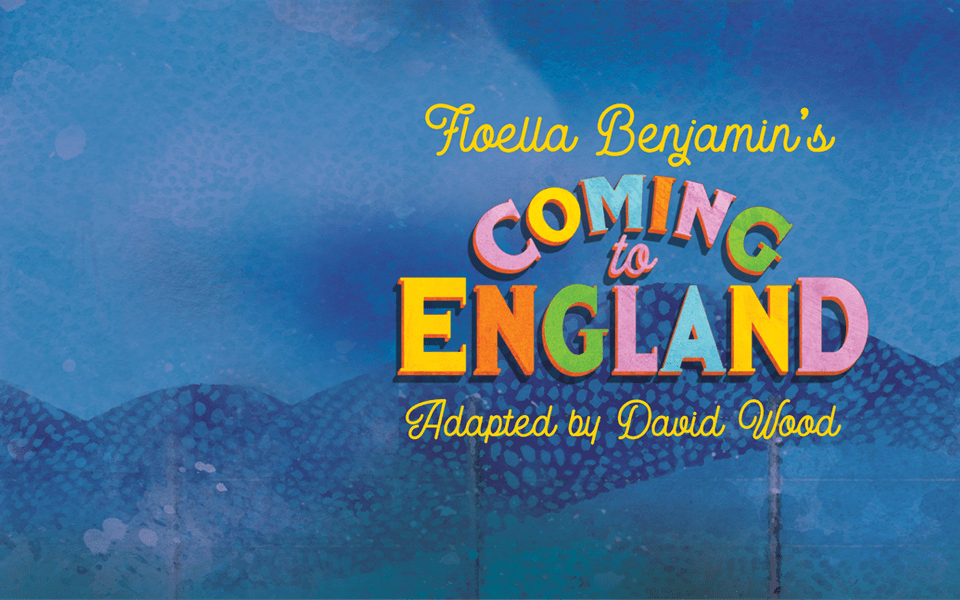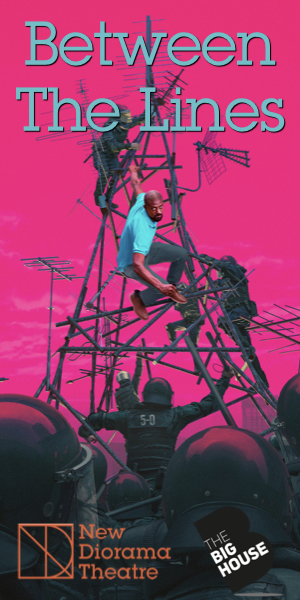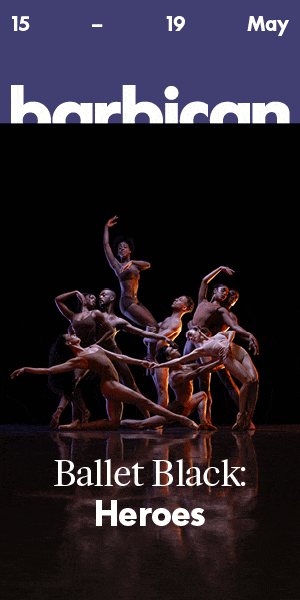
Baroness Floella Benjamin’s inspirational and award-winning book COMING TO ENGLAND is being brought to life at The Birmingham Rep this March. The play is full of song, dance and sensory explosions that are promised to make you feel inspired, uplifted, and entertained.
Based on Floella’s true life experience, it tells the story of a 10-year-old Floella’s (young Floella) journey from Trinidad to England. When leaving her beautiful country behind to join her mother in England, young Floella expects to be warmly greeted by Britain. Instead, she gets a cruel awakening when she is told daily to go back to Trinidad and never come back. Like many Caribbean’s during the Windrush era, young Floella and her family were sold a dream that in reality was a nightmare.
Floella wanted this story to inspire both children and adults to overcome difficulties in life and it certainly looks like it has. Floella demonstrates that although she faced many negative challenges growing up in England, she did not let it break her. Instead, she allowed it to give her ammunition to become the best version of her that she can be. After hearing Floella’s story and discussing COMING TO ENGLAND, I felt extremely inspired and excited about her work and the play.
Whenever I go into schools, I get children to shout “I am worthy” from the top of their lungs and the noise the children make is unbelievable. This is often the first time that some children may have been told that they are loved and that they are worthy, and it will make them feel great about who they are.
It’s exciting to see that COMING TO ENGLAND has been a book, played on screen and now a play. How do you feel seeing your story being adapted to a play?
It’s exciting! I initially wanted it to be in the theatre. I always saw it as a theatre production and then the idea came that rather than it just being a theatre production why not make it a musical production. My husband Keith and I adapted COMING TO ENGLAND for the film with BBC Education; however, even though both of us had come from a musical background we felt that it needed someone with experience with musical plays to do it justice. That’s where David Woods came in. I saw that he had done such great work with other musicals such as THE TIGER WHO CAME TO TEA so I knew he would be perfect for COMING TO ENGLAND.
When I approached David, he initially said no as he didn’t think he’d be able to give it the justice it deserved, but after convincing him, he decided to go ahead and adapt the play. When Keith and I received the script, we loved it. I could not stop turning the page as I wanted to read more. It was fantastic, and I could feel the energy and hear the voices of the actors. It felt like the words had come alive on paper. Not only has the play got great music, but it also has audience participation the moment you enter the auditorium, making you instantly feel immersed in the play.
It’s important to have the right creative team to take your story to the next level. A strong creative team is crucial in producing an impactful play. I love that they wanted to make the production immersive from the moment the audience enter the auditorium.
Yes! We have a great director called Omar [Okai] who has brought this play to life. He has the knowledge, energy, excitement, and experience of taking both my work and David’s adaptation to make it a magical experience for the audience when they enter the theatre.
We want both children and adults to be amazed from the moment they enter the auditorium. I wrote COMING TO ENGLAND from a child’s perspective. We will always remember our childhood experiences, whether they are good or bad, because it’s inside of us. When young children come to watch this play, they will be able to take the story away with them and use it as an example to overcome negative experiences and difficult challenges. The cast are adults playing children. I hope that they will bring some of their experiences and memories of being a child to the piece. Having actors going back into their memories of children should bring another element to the story.
COMING TO ENGLAND is for everybody to see and I want everyone to leave the theatre singing songs and feeling inspired to go out and make a difference in any way they can. I want them to leave with the hopes that they can achieve whatever their dreams are with no limitations.
I think this play will work on many different levels and I want it to be inspirational, but I also want people to leave the theatre singing and dancing and to feel excited by all the spectacular visuals that they will see. So even though they may feel sad about some of the themes and topics in the story, I want them to leave on a happy, joyful, uplifting note.
You wrote COMING TO ENGLAND from the child’s perspective and turned the original book into a children’s picture book. Why did you want this story to be aimed at children?
When I wrote the book, I wrote it as an adult through the eyes of a child. The story came about because my own children wanted to know what it was like for me as a child growing up in Trinidad and England. I couldn’t find a book or anything to give them the information on what it was like coming to England from the Caribbean. It was hard to describe what it was like to belong to a culture and then leaving that culture to travel the Atlantic Ocean to go to the UK.
I had to travel with my brothers and sisters under the age of 11 to a place where I believed that I would be loved and be reconnected with my family. It was a harsh shock to then be faced with so much rejection and to be told to go back to where I came from. I had to fight through the negativity to become who I am today. I hope people will feel that if I can do it then they can do it too, because it’s not where you start that matters but where you’ll end up. David has adapted the story so that it will start with me receiving the [Honorary Freedom of the] City of London and seeing how successful I am. It then goes back to my beginnings, which shows it’s not where you start that matters but it’s where you end up which is truly important in life.
The story of COMING TO ENGLAND tells the story of a young Floella who comes from Trinidad to England and the experiences she faces. Can you tell us a bit more about some of the experiences portrayed in the play and how they shape young Floella
The play will portray that people in the Caribbean felt very British. We came here not as immigrants, but invited citizens who felt very much British. We were told that the Queen loved us. We came to England with high expectations and were ready to serve the Queen and the country. We were asked to help rebuild Britain after WW2 in becoming great again. It was a strange feeling to know that the people of the motherland did not want to connect with you.
It was traumatic and I always remember being called names. Racist names. I didn’t know what the names were, that’s why I never put them in the book. When I told my mother, she started to cry because she realised that she had not prepared us to face a barrage of insults.
She told us that some people will not like you and some may hate you, because of the colour of your skin. It was a real realisation that people didn’t see me as a person but as a colour. I’ve always been described as a colour rather than Floella. It’s very difficult as a young child to come to terms with this. When you’re older you can rationalise it in your head. But when you’ve spent your childhood in the Caribbean and were told that you are special and loved not only by your family but by the queen and the nation of Britain, and then realise that it’s not true, it’s hard to come to terms with as a child.
Children write to me and tell me that this is the first time that someone has told them that they are loved, and now can cope with anything. Adults do the same thing as well. Whether you are a child or an adult you need to know that you are loved and that’s what COMING TO ENGLAND will make you feel.
I think all schools should have some sort of national anthem that the children sing at an early age daily. That way when you stand up, you’ll feel proud of who you are. You’ll feel worthy and confident. If you know in your heart that you are special and worthy, then it doesn’t matter what people think of you. The early years of me having to face all of this in Britain has served me well, because it didn’t dent me nor break me, adversity can either break you or make you stronger. It made me stronger, and it made me feel powerful. It empowered me to face what I had to face and that’s the message I try to hand to children. Whenever I go into schools, I get children to shout “I am worthy” from the top of their lungs and the noise the children make is unbelievable. This is often the first time that some children may have been told that they are loved and that they are worthy, and it will make them feel great about who they are. This is what ‘Coming to England’ has allowed me to do and I feel privileged to pass this message onto children.
That is an important and impactful message in general for both children and adults to know that they are worthy. Have you seen this impact on people you share your story with?
Children write to me and tell me that this is the first time that someone has told them that they are loved, and now can cope with anything. Adults do the same thing as well. Whether you are a child or an adult you need to know that you are loved and that’s what COMING TO ENGLAND will make you feel.
You can be in control of your life and your destiny and not allow people to make you feel bad about who you are. ‘Coming to England’ is not about race or colour, it’s about being different, and how you cope and deal with being different.
My whole mission in life is to change the world and make a difference to other people’s lives and this is what Coming to England has done over the last 26 years. When I first wrote it, the publisher said to me that this will be a sleeper. It will become a classic and will constantly be read by people over the years. Every year more people are discovering the story and for the 20th anniversary it was The Times book of the year and The Guardian’s book of the month.
I wrote the picture book version of ‘Coming to England’ last year which is aimed at 7-year-olds. There is a whole new audience that has discovered the picture book version. I get lots of messages from children telling me how much they loved the story and now know so much about the Windrush generation. When I came to Britain as a 10-year-old, I was told to go back to where I came from, but now children know where the Caribbean is and know about the Windrush story. Hasn’t the world turned around?

My Grandma came to England during the Windrush, and she often shared her experience. My niece has your book as we wanted to keep the Windrush story alive. Your book was written over 20 years ago. As we move away from the Windrush era, why do you think your story is attracting new audiences from new generations?
I think it’s because it’s an untold story. It’s a sleeper and more people will discover it as time goes by as there is not another book like it. The only story similar is ‘Small Island’ but it tells it from the adult’s perspective rather than the child’s. We have all been children, and this is the story of hope that says no matter what you’re going through it’s happening for a reason and don’t ever give up. Adversity can either make or break you. When I was growing up, we went to buy a house in Beckenham, Kent which was a white middle class area. They sent the police to arrest us because they said “black people don’t live here”! My mum said, “You know something, we’re going to buy this house”. She lived there for 40 years. Sadly, she did not get to see me as a Baroness, but I told her that “I’m going to claim Beckenham for you and I’m going to be known as the Baroness of Beckenham”.
When we moved in originally people started to move out because they didn’t want to live next to the Black people, but where I live now, the estate agents will tell people that Floella Benjamin lives there. It’s now a selling point! Had I believed what they told me all those years ago, I wouldn’t be Floella Benjamin. Instead, I would be a victim, and I’ve never believed that I am a victim. My mother always used to say to us that “education is your passport to life, because one day you will be great, and you’ll have something to offer the world, so don’t feel negative about yourself”. If you carry that message rather than feeling that you are a victim, then you won’t lose. The COMING TO ENGLAND story shows that no matter your race or where you were born, don’t believe in the negative words that they tell you.
This story is to give you hope and love in your hearts, and this is what’s happening in schools now. Teachers are telling the story of ‘Coming to England’ and children are being inspired and want to be Floella Benjamin when they grow up. I’ve taken them to a new place of discovery, because when I came to Britain there weren’t any books or stories about us, whereas now there is, and I want other people to tell their own stories.
Although our families had to go through trauma from Windrush, it is their stories that keep us alive and wanting to achieve greatness.
I agree, you should never look at the negatives because you will then become a victim. I always say people should smile because when I smile it releases great energy throughout your body. When people are being horrible to you, smile at them and it shows that you are so strong, that no matter what you go through you can still smile. A great example is the song ‘Smile’ by Charlie Chapman. When you listen to the lyrics, he’s telling you to smile though your heart is aching. When you smile a certain chemical flow through your body that uplifts you and helps you to deal with the world and difficult things. So, you should always smile with pride to feel great about who you are.
That’s a beautiful way of thinking and I will make this my mantra going forward.
COMING TO ENGLAND is for everybody to see and I want everyone to leave the theatre singing songs and feeling inspired to go out and make a difference in any way they can. I want them to leave with the hopes that they can achieve whatever their dreams are with no limitations. I want you to leave feeling energised and with hopes that you can go out into the world and achieve greatness but always remember the experience you had when you watched ‘Coming to England’ and how it made you feel.
I hope everyone watches the play, as the story is as inspirational and uplifting as you are.






























